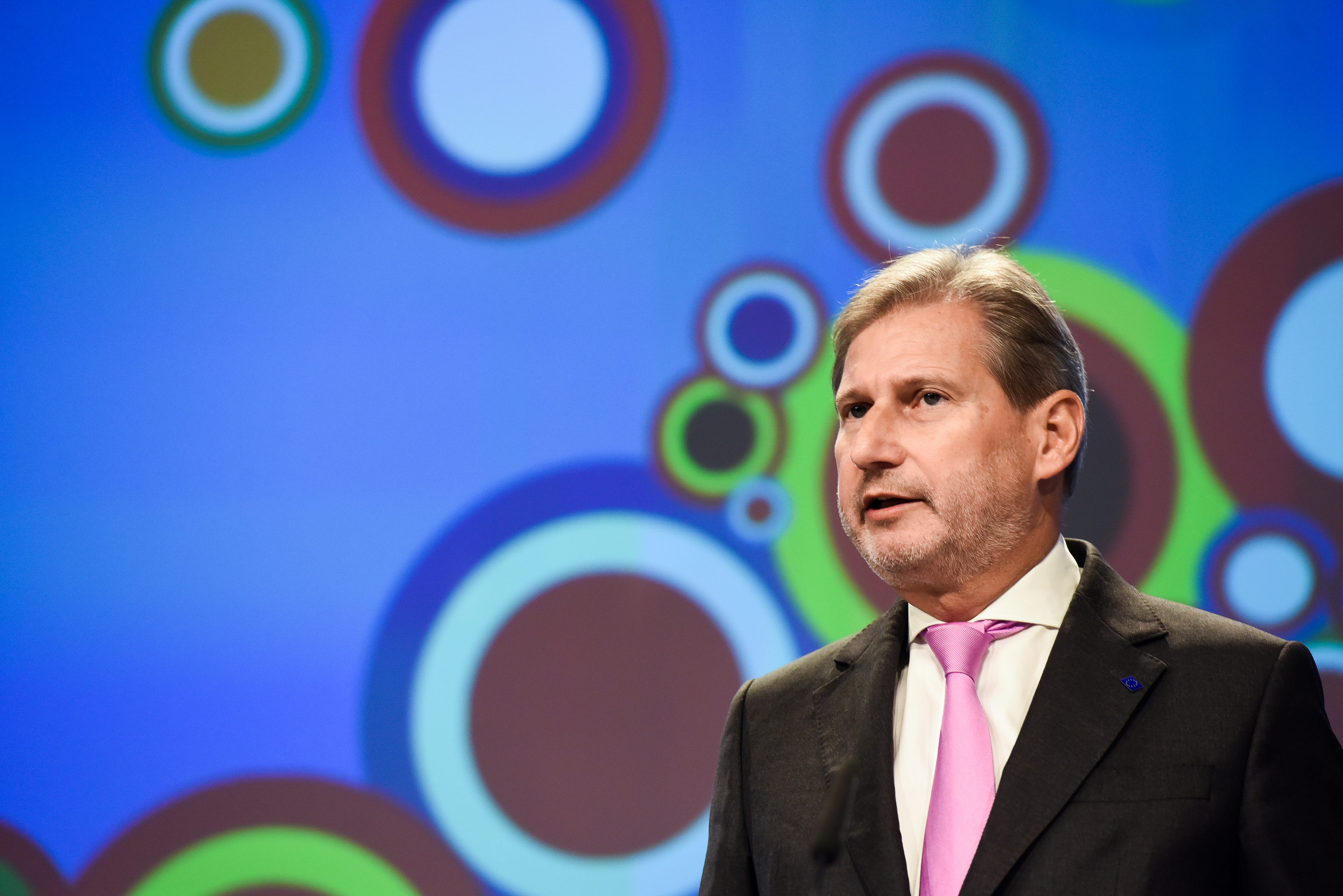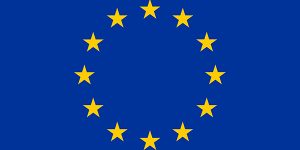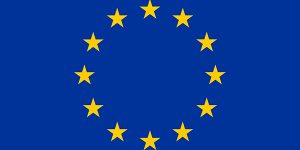Check against delivery!
Chairman, Honourable members,
I am delighted to be presenting the 2016 Enlargement package in this committee today.
Last year, I set out a medium term strategy to cover the mandate of the Juncker Commission. Today, we look back at the first year of its implementation, take stock of where the countries stand, and make clear recommendations for each.
First of all, I want to stress that enlargement policy continues to deliver results. It remains the best tool to support the modernisation of the countries of Southeast Europe. Through this transformation, we create security, stability and prosperity for our partners – and especially ourselves. Clear, credible and conditional enlargement therefore remains in the EU’s very own interest.
In a number of countries, important steps forward have been made. Nevertheless, reforms are moving at varying speeds and most countries still face important structural shortcomings. Given the complex nature of the necessary reforms, this is of course a long-term process. It therefore remains essential to keep following the ‘fundamentals first’ approach.
Most countries have undertaken serious efforts to modernise the legal frameworks and infrastructure of their judicial systems. Albania unanimously adopted constitutional amendments in July, which are the basis for a deep and comprehensive judicial reform. However, most countries continue to lack sufficient independence and accountability of their judicial systems, which in turn affects their political and economic situation.
In recent years, the countries have strengthened frameworks for fighting corruption and organised crime. Now these political commitments must deliver concrete results! Tangible track records of investigations, prosecutions and convictions must be established. The authorities must seriously start dismantling criminal networks.
Terrorism and radicalisation also continue to pose a security threat to the EU and especially the enlargement countries themselves. Collaboration has improved here, and we will build on this.
Fundamental rights continue to be largely enshrined in law. But practical implementation still falls short in certain key areas, not least the freedom of expression and of the media. Discrimination and hostility towards vulnerable groups is also a serious issue.
The proper functioning of democratic institutions shows shortcomings in a number of countries. The central role of national parliaments for democracy needs to be fully embraced. We have also seen the work of parliaments hampered by boycotts. This divisive political culture needs to be overcome – in the very interest of the citizens.
The economic situation has gradually improved in the countries. We have upgraded our support to them through the Economic Reform Programmes process. However, enlargement countries face structural economic and social challenges, with ineffective public administrations, weak public financial management and high unemployment rates. The continuing weaknesses of the rule of law negatively affect the investment climate in many countries – hence our insistence on the “”fundamentals”.
Ladies and gentlemen, dear colleagues,
I paint a deliberately realistic picture here – in the interest of the countries and our own citizens. Because no one should underestimate the magnitude of the strategic challenge here! Enlargement is no walk in the park, and I would like to see an even stronger commitment from the leaders in our partner countries.
At the same time, I want to reiterate very clearly to our European citizens, how vital this policy is for our very own strategic interests.
Nowhere has this enlightened self-interest been as visible over the last year as in the migration crisis: This should prove even to the sceptics that Europe cannot afford any absence from its own geopolitical front-yard.
Our joint efforts with Turkey and the Western Balkans countries, including the effective closure of the Western Balkans route and the implementation of the EU-Turkey Statement of 18 March, delivered results on the ground: a significant drop in number of migrants reaching the Greek islands and – more importantly – a sharp decrease in the lives lost at sea on that route.
However, those who believe this crisis is over, and that we could go back to “business as usual”, are mistaken. The EU must continue supporting all countries, in their reception capacity and in their fight against migrant smugglers. We must understand that our partners in the region are part of the solution – not the problem. As I keep saying: They must not be turned into “parking lots”.
In the same vein, regional cooperation has progressed well over the last year.
The connectivity agenda we are spearheading, in particular in the context of the ‘Berlin process’ and the Western Balkans Six format, is bearing fruit. It connects people, markets and infrastructure. This year’s Paris Summit gave us a further, substantial menu to work on – which is crucial not only to create economic opportunities but also to foster good neighbourly relations and help overcome bilateral disputes.
Finally, honourable members, l would now like to highlight a few of the main findings of the reports for each country:
Let me begin with Turkey. We remain key partners for each other. The coup attempt of 15 July was an attack on democracy per se. We were among the very first to condemn it. And given the seriousness of situation, a swift reaction to that threat was legitimate.
However, the large scale and collective nature of measures taken over the last months raise very serious concerns. Turkey, as a candidate country, must fulfil the highest standards in the rule of law and fundamental rights, to which it committed itself and on which there cannot be any compromises.
In this year’s report, we therefore stress Turkey’s backsliding in the area of the rule of law and fundamental rights. The measures taken since July, including those over the last days, raise a number of very serious questions going to the heart of the rule of law.
There were reports of serious human rights violations, including alleged widespread ill-treatment and torture of detainees. The crackdown has continued since and has been broadened to pro-Kurdish and other opposition voices with a very serious impact on freedom of expression.
The measures affected the whole spectrum of society, from the military and the police to academia, media and the business community. The detention of 11 MP from HDP last week, including the two party’s co-chairs, adds to our concerns, and further exacerbates the situation in the south-east of the country
These various actions, including considerations of reintroducing the death penalty, seem to be increasingly incompatible with Turkey’s official desire to become a member of the European Union.
In short: With all necessary understanding for a robust reaction to the coup attempt: the backsliding affects the roots of Turkey’s political and economic success of the last decade. It is time Ankara tells us what they really want. This is a test for their credibility, but also for that of the EU.
Despite these serious challenges, the EU and Turkey deepened their relations in all key areas of joint interest, as agreed at the EU-Turkey Summit of 29 November 2015.
I have already mentioned the very important role the country has played in the refugee crisis, with our substantial financial support through the “Facility for refugees”. Turkey also made substantial progress over the past year in fulfilling the benchmarks of the visa liberalisation roadmap. As you know, the Commission made a proposal to lift the visa requirement on the understanding that Turkey would fulfil all outstanding benchmarks. The accession process was re-energised with the opening of two more chapters in November 2015 and June 2016 respectively.
This work shows how broad and positive our relationship could actually be if Ankara overcame its current issues.
Let me know turn to the Western Balkans:
Montenegro has made good progress on its EU path. The parliamentary elections of October 2016 were conducted in a more participatory and transparent manner. The legal framework in the area of rule of law is largely complete and the institutional set-up is in place; but the system now needs to deliver. We need to see a real track record of implementation. The pace of accession negotiations will continue to be determined by tangible results, especially on fighting corruption and organised crime.
Serbia has also taken major steps forward, which led to the first four chapters of the EU accession negotiations being opened, including on rule of law and on normalisation of its relations with Kosovo. The overall pace of negotiations will depend in particular on progress in these two areas. Serbia too has been seriously affected by the migration crisis, during which it has played an active and constructive role. The economic reforms are producing results and need to continue.
In the former Yugoslav Republic of Macedonia, we are not out of the domestic political crisis yet, despite good steps recently. Concerns remain about the functioning of democratic institutions. There is now a real opportunity for leaders to overcome the crisis and address systemic issues. The country needs to ensure credible parliamentary elections and substantial progress in the implementation of the Urgent Reform Priorities.
Like Serbia, the country has played an active role in tackling the migration crisis and cooperated with neighbouring countries and Member States.
Albania has continued to make steady progress towards fulfilling all of the five key priorities for the opening of accession negotiations. Pivotal constitutional amendments were unanimously adopted in July 2016, launching a thorough and comprehensive judicial reform process system. Public administration reform continued to be implemented consistently. Work towards solid track records of proactive investigations, prosecutions and convictions in the fight against corruption and organised crime also continued but must be deepened.
In view of the above progress, the Commission recommends opening accession negotiations with Albania.
However: this is subject to credible and tangible progress in the implementation of the justice reform, in particular with regard to the re-evaluation of judges and prosecutors (so-called “vetting”). Simply put: we must see very clearly and credibly that this works on the ground. Only results count.
Bosnia and Herzegovina made progress on key priorities stemming from its reform process. This paved the way for the Council to ask the Commission to prepare an opinion on the country’s membership application. This progress must now be sustained. The country’s leaders must tackle the deeply rooted structural problems that have been holding back the development of their country. Strengthening the rule of law and public administration on all levels of government, as well as further improving cooperation between all levels, remains a priority.
As regards Kosovo, the Stabilisation and Association Agreement which is now in force provides a comprehensive framework for closer political and economic relations with the EU. The country has also taken major steps in fulfilling the requirements of the visa liberalisation roadmap, allowing the Commission to issue a formal proposal in May 2016 to lift the visa obligation. But the two remaining requirements must be met. The protracted political stalemate in Pristina must be overcome. Kosovo has no time to lose. The numerous reform challenges can’t wait, in particular with regard to the rule of law and structural economic reforms.
Honourable Members,
These were the most important takeaways from this year’s reports.
I think all of what I said shows: Accession negotiations are not an end in themselves, but a strategic process that brings concrete results through economic and democratic reforms. It is at times a lengthy and complex process. But every chapter that is opened, every benchmark that is met gradually transforms the countries concerned, improving their resilience and strengthening stability in our immediate neighbourhood.
Another key point: we must drive this policy forward, but we don’t “own” it. I am not in the business of imposing solutions, even if they are well-meant. What we need is more and genuine local ownership. The leaders of all our partner countries are responsible. They must truly make these inevitable reforms part of their political agenda and take stronger ownership of the tools and assistance the accession process makes available to them.
For our part, we must not forget that many of the challenges that currently affect our Union also link us even more deeply to our enlargement countries. Look at a map: the Western Balkans are already an “enclave” in the EU. It is therefore in everyone’s interest that we prioritise the right reforms together and further stabilise the region.
Honourable members,
I count on your strong, continued support on further strengthening relations with the Enlargement countries. Your contribution is key – especially when it comes to upholding democratic values. I look forward to your questions and comments.
Thank you.




